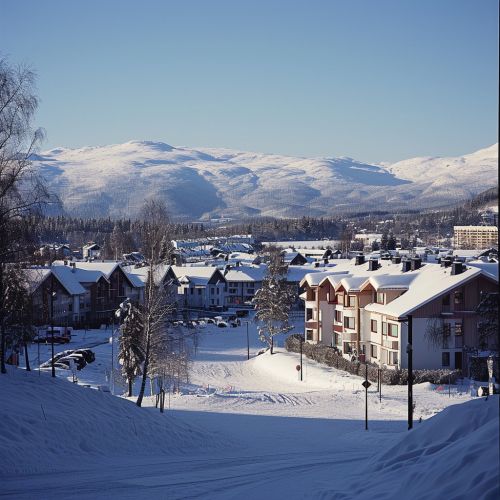1994 Winter Olympics
Overview
The 1994 Winter Olympics, officially known as the XVII Olympic Winter Games, were a winter multi-sport event held in Lillehammer, Norway, from 12 to 27 February 1994. This was the second time Norway had hosted the Winter Olympics, after the 1952 Winter Olympics in Oslo, and the fourth Winter Games held in a Nordic country.
Bidding and Organization
The bidding process for the 1994 Winter Olympics began in 1988, with five cities expressing interest. Lillehammer was awarded the Games on 15 September 1988, beating out the Austrian city of Obergurgl. The Norwegian Olympic Organizing Committee was responsible for planning and organizing the event, with the construction of new facilities and infrastructure being a significant part of the preparations.


Venues
The 1994 Winter Olympics were spread across ten different venues. The main hub was the Lillehammer Olympic Park, which included the Lysgårdsbakkene Ski Jumping Arena, the Håkons Hall, and the Olympic Stadium. Other venues included the Kvitfjell Alpine Skiing, Hunderfossen Luge and Bobsleigh Track, and the Birkebeineren Ski Stadium.
Participating Nations
A total of 67 nations participated in the 1994 Winter Olympics, with seven countries making their Winter Olympic debuts. These included Armenia, Israel, Kazakhstan, Uzbekistan, Georgia, Moldova, and Ukraine.
Sports
The 1994 Winter Olympics featured 61 events in 6 sports. The sports included Alpine skiing, Biathlon, Bobsleigh, Cross-country skiing, Figure skating, Freestyle skiing, Ice hockey, Luge, Nordic combined, Short track speed skating, Ski jumping, Snowboarding, and Speed skating.
Medal Table
Germany topped the medal table at the 1994 Winter Olympics, winning a total of 24 medals, including 9 golds. Russia and Norway followed closely, with Norway winning the most gold medals (10).
Legacy
The 1994 Winter Olympics are considered one of the most successful Winter Games in history. The event left a lasting legacy in Lillehammer and Norway, with improvements in infrastructure and sporting facilities that are still in use today. The Games also had a significant cultural impact, promoting Norwegian culture and traditions to a global audience.
